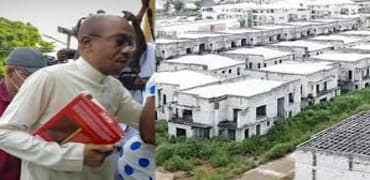SERAP’s Ultimatum: Reverse Telecom Tariff Hike or Face Legal Battle, Tinubu Govt Warned
SERAP’s Ultimatum: Reverse Telecom Tariff Hike or Face Legal Battle, Tinubu Govt Warned
By Achimi muktar
In a bold move against the Bola Tinubu administration, the Socio-Economic Rights and Accountability Project (SERAP) has issued a 48-hour ultimatum demanding the reversal of a 50% tariff hike for calls and data approved by the Nigerian Communications Commission (NCC). SERAP has threatened legal action if the increase, which affects major telecom operators like MTN and Airtel, is not rescinded.
The Controversial Hike
The NCC recently granted a 50% tariff increase, citing rising operational costs for telecom providers. According to Reuben Mouka, the commission's spokesperson, the hike was a compromise from the over 100% increase initially sought by operators.
“The tariff rates have remained unchanged since 2013, despite increasing operational costs,” Mouka explained, adding that the adjustment aligns with the NCC’s regulatory powers under Section 108 of the Nigerian Communications Act, 2003.
While the commission claims the move is necessary to sustain the telecom industry, operators are also tasked with informing the public and improving service delivery.
SERAP’s Fierce Opposition
SERAP has rejected the hike outright, arguing that it will disproportionately burden economically vulnerable Nigerians, exacerbating poverty and inequality. The advocacy group took to its X (formerly Twitter) account to issue a firm warning:
“The Tinubu administration and telcos must immediately reverse the unlawful increase in calls and data costs. We’ll see in court if the 50% tariff hike is not reversed within 48 hours.”
SERAP emphasized the government’s obligation to protect citizens’ rights to affordable communication services.
“This increase impairs the enjoyment of rights, particularly for economically disadvantaged groups. It is unlawful and discriminatory,” the statement read.
Public Reaction and Economic Implications
The tariff hike has sparked widespread public outcry, with many Nigerians expressing concerns over the increasing cost of living. For a population already grappling with economic challenges, the added expense of communication services threatens to deepen financial hardship.
Critics argue that affordable telecom services are essential for everyday life, from conducting business to accessing education and healthcare. They warn that the tariff increase could further alienate low-income groups from critical services, widening the digital divide.
A Looming Legal Battle?
SERAP’s ultimatum underscores its readiness to challenge the government and telecom operators in court. The group has a history of holding public officials accountable, and this case could set a significant legal precedent for consumer rights and regulatory practices in Nigeria.
What’s Next?
As the clock ticks on SERAP’s 48-hour deadline, all eyes are on the Tinubu administration’s next move. Will the government bow to pressure and reverse the tariff hike, or will it stand by the NCC’s decision, risking a high-profile legal showdown?
For now, millions of Nigerians await a resolution that balances the needs of telecom operators with the rights of consumers, as the country navigates the complexities of economic sustainability and social equity.



















